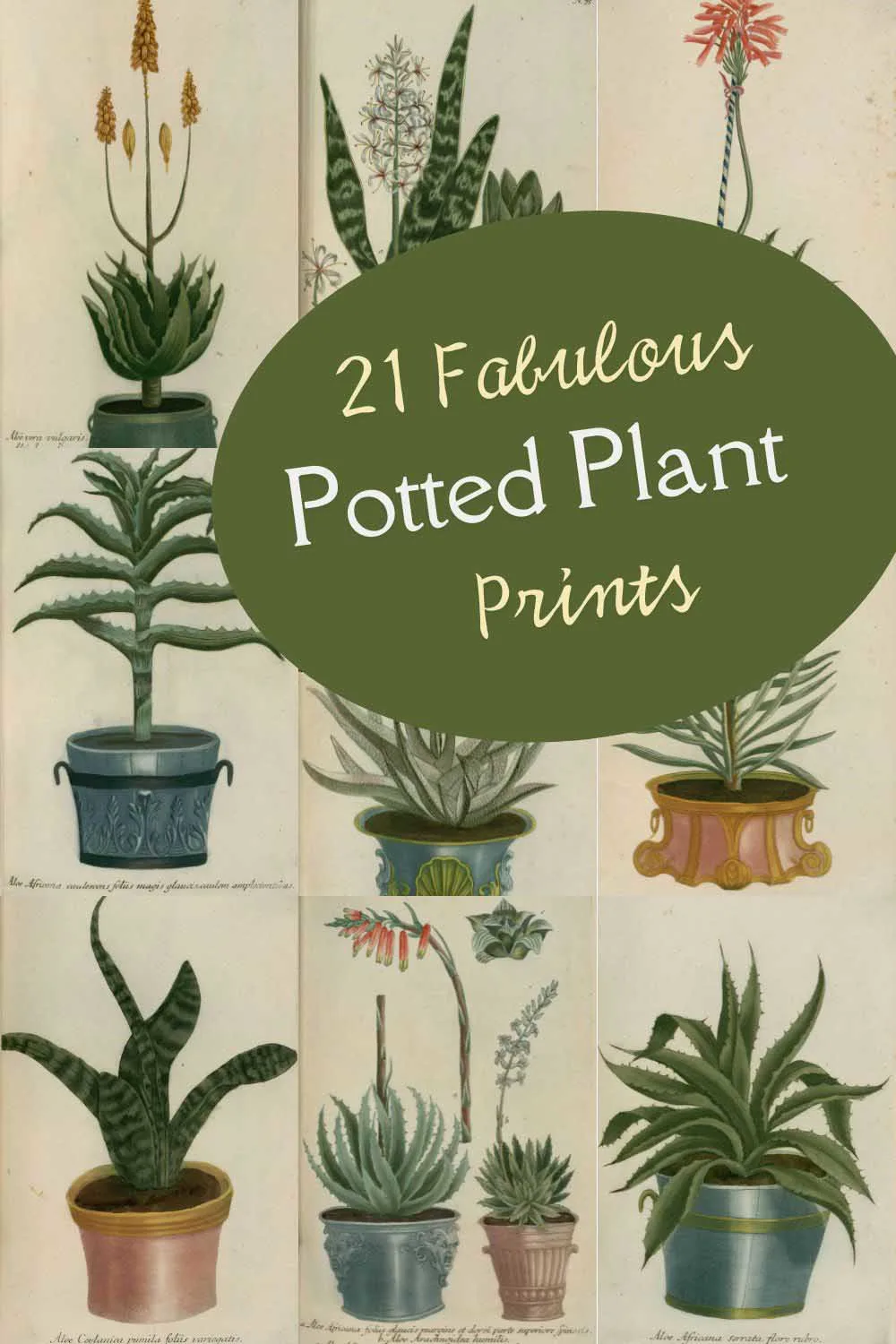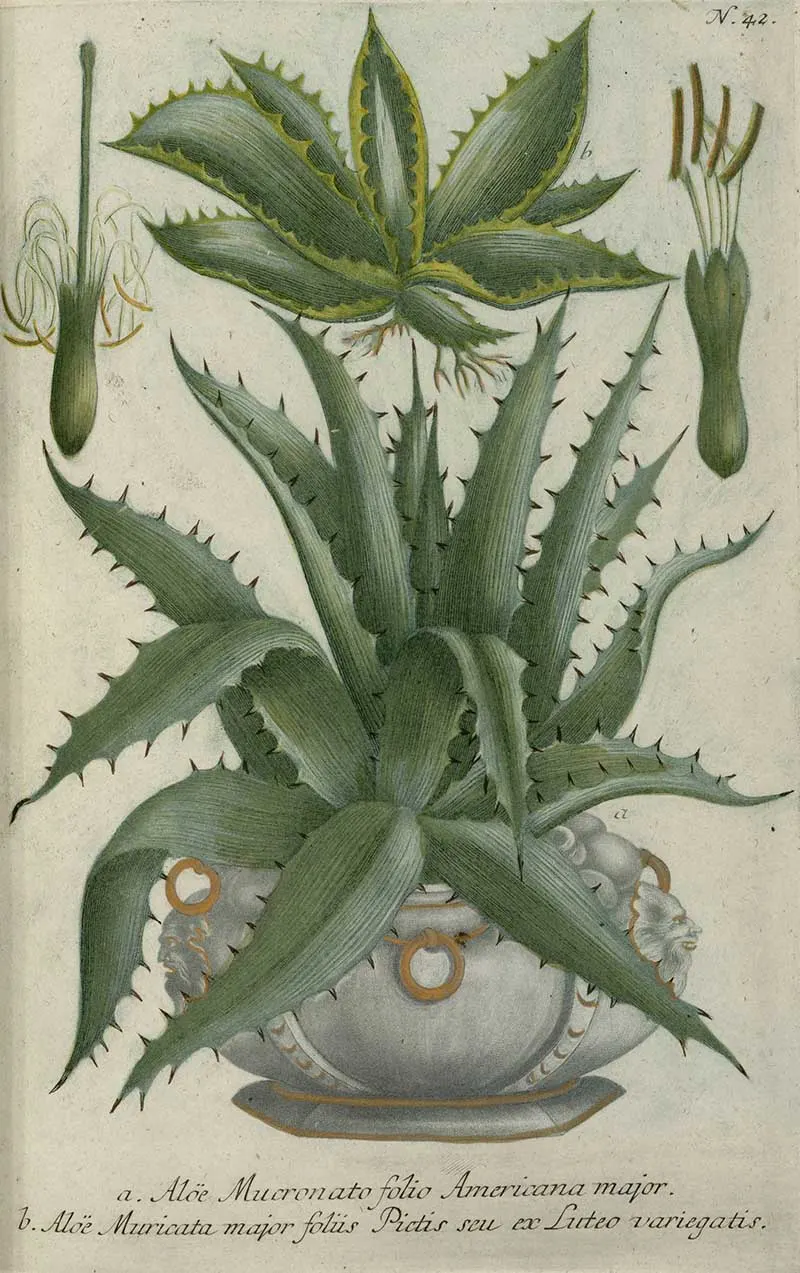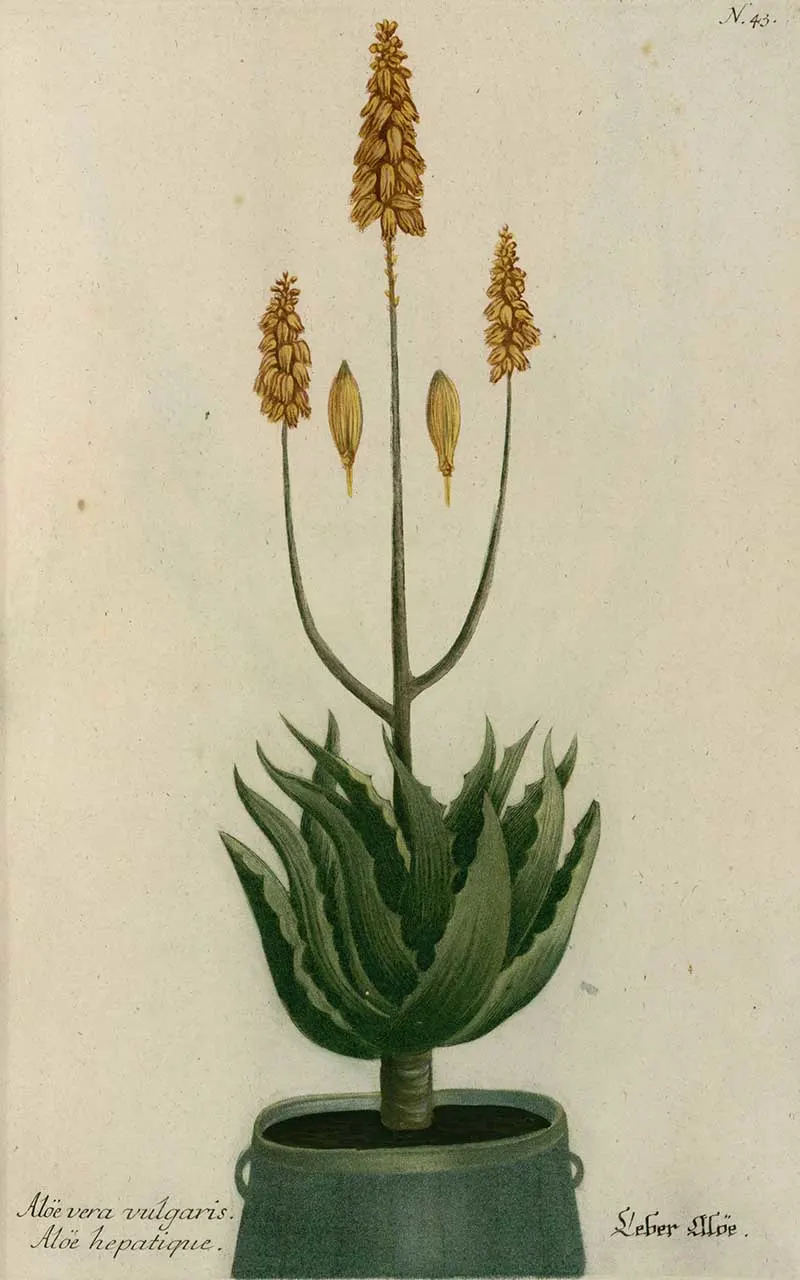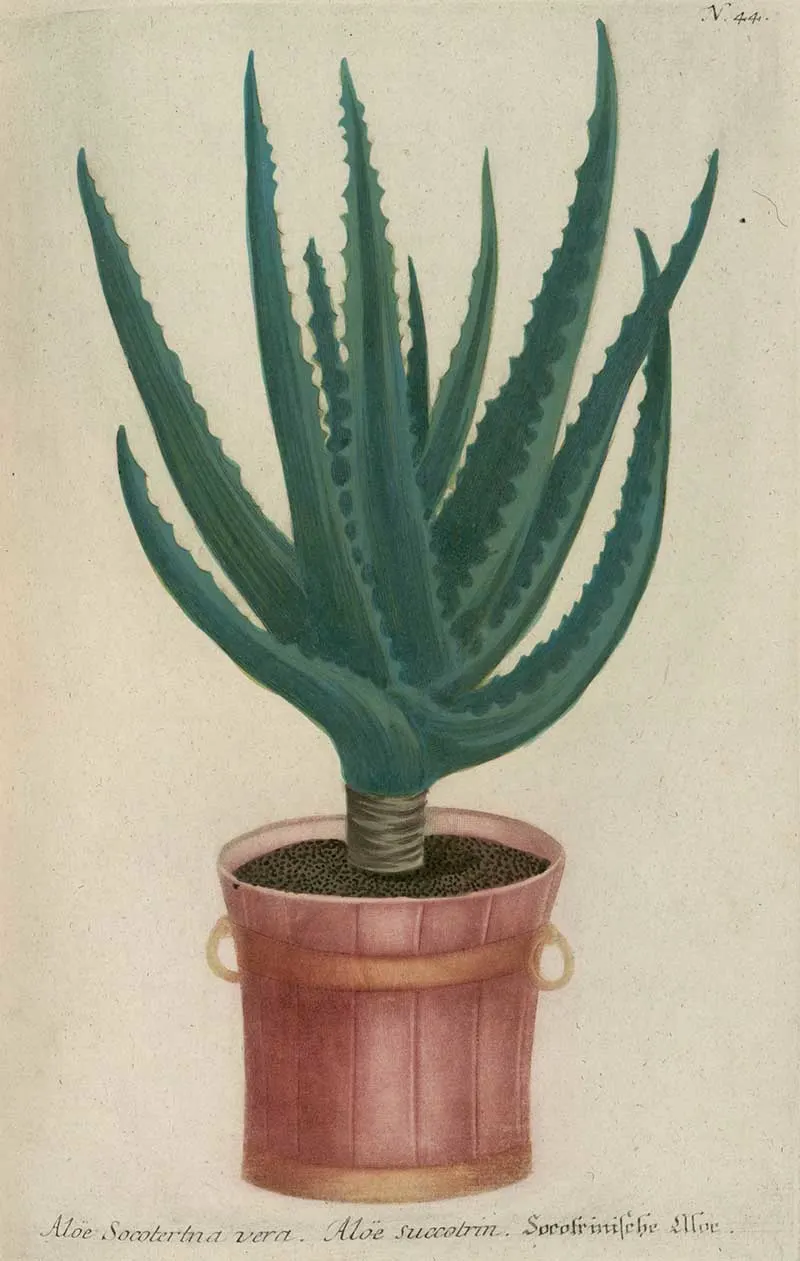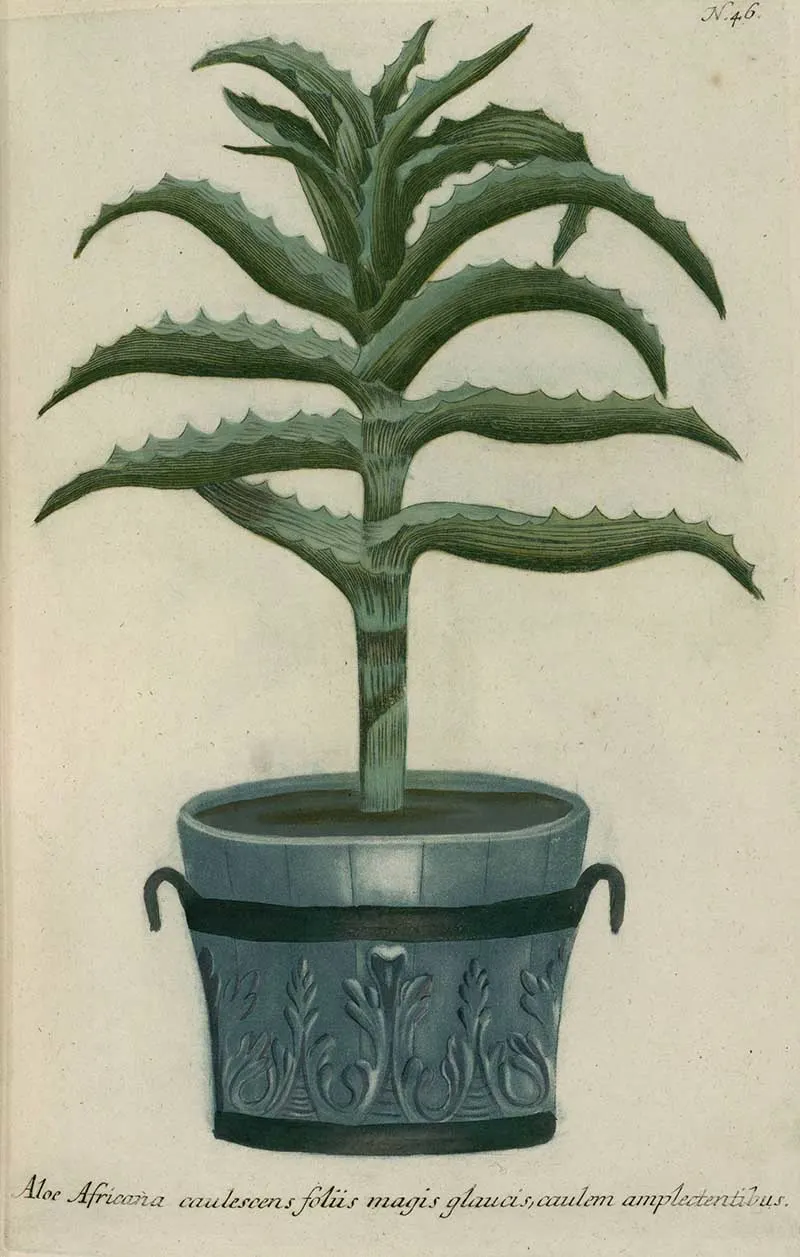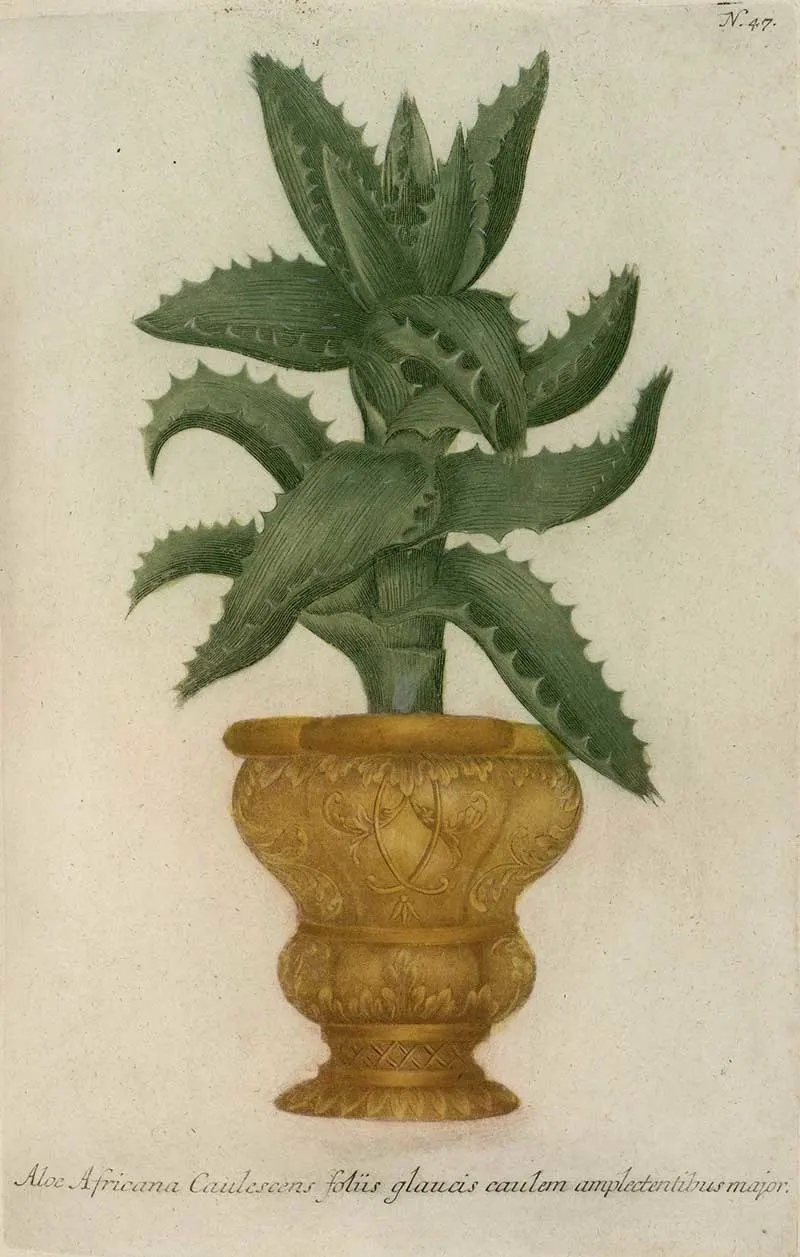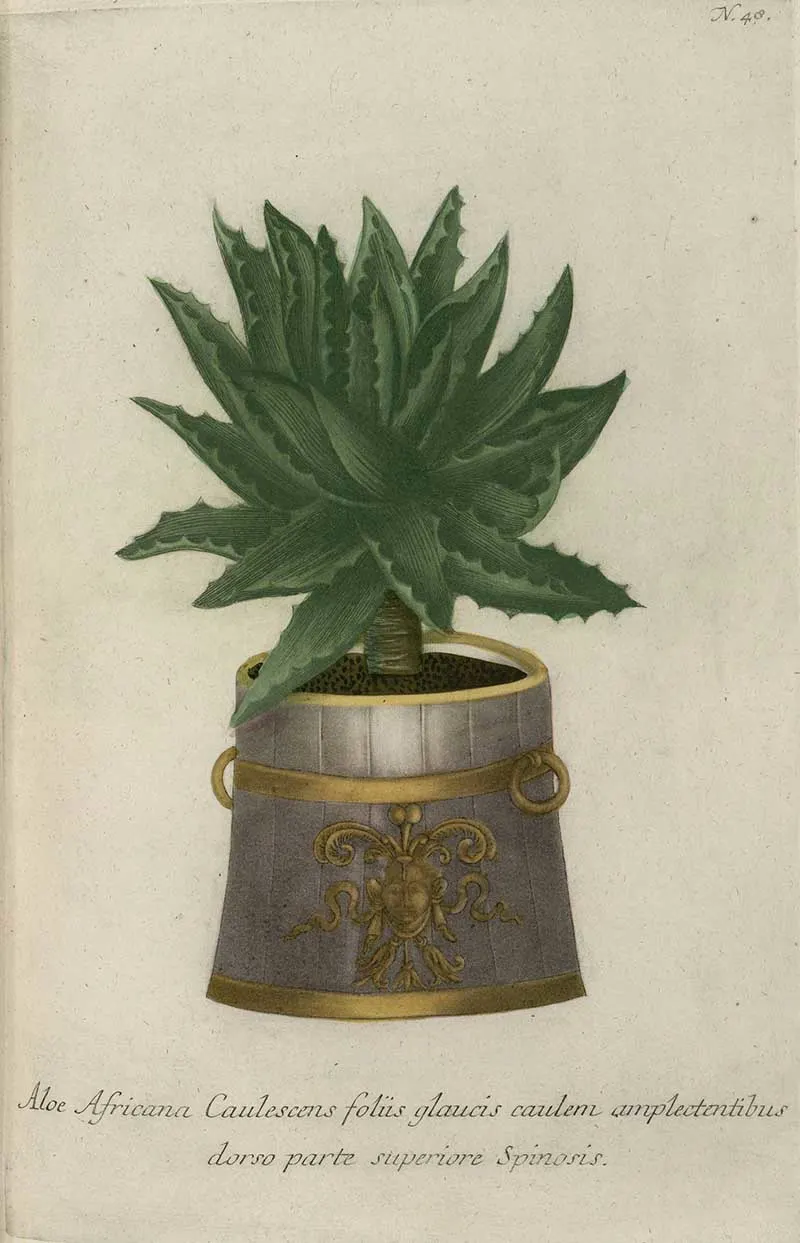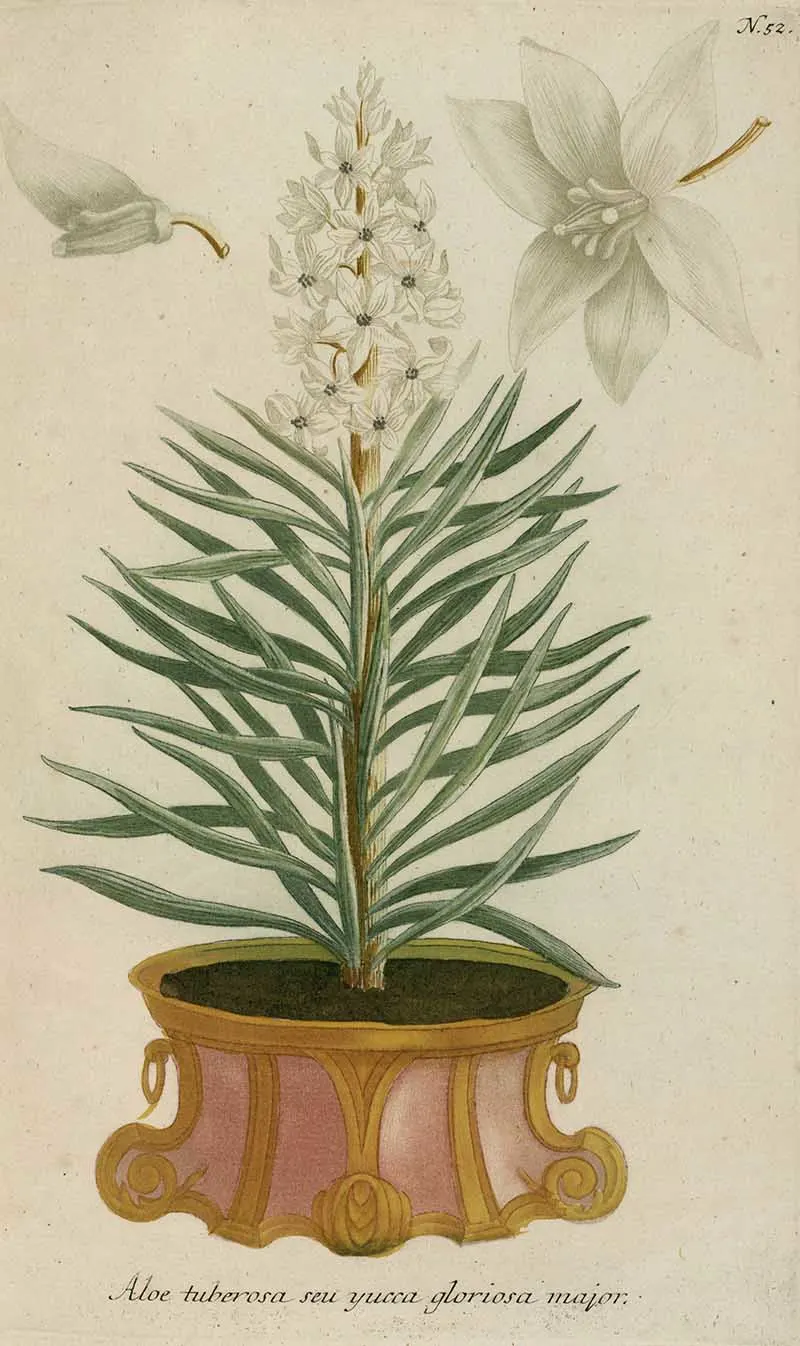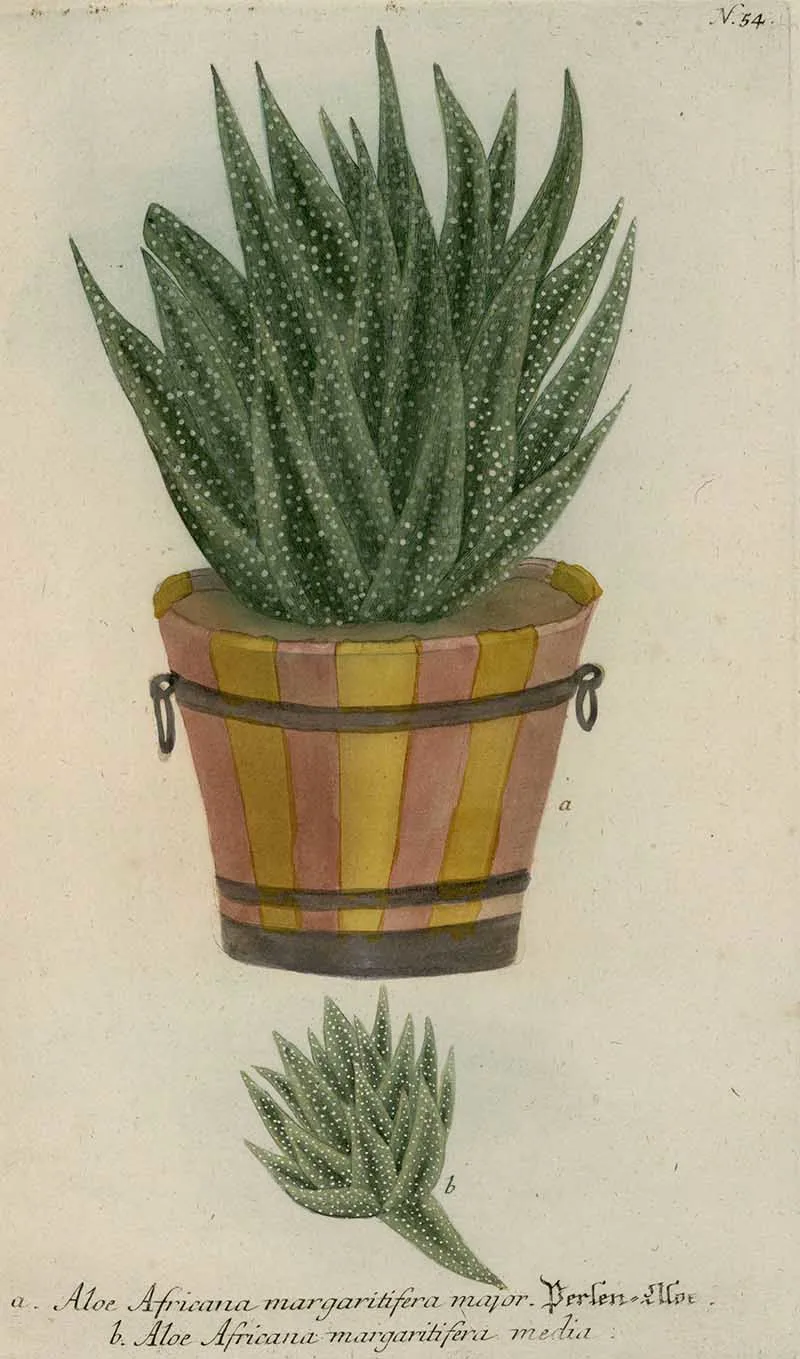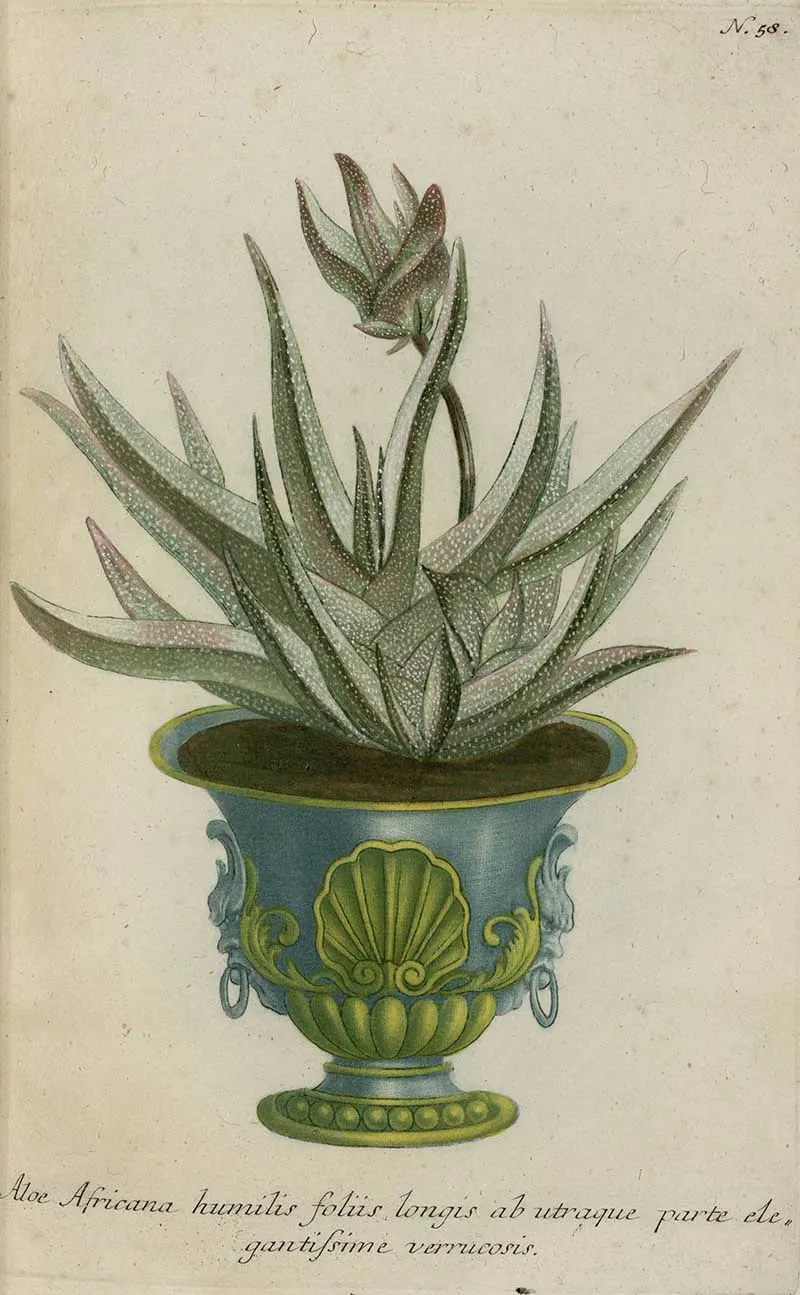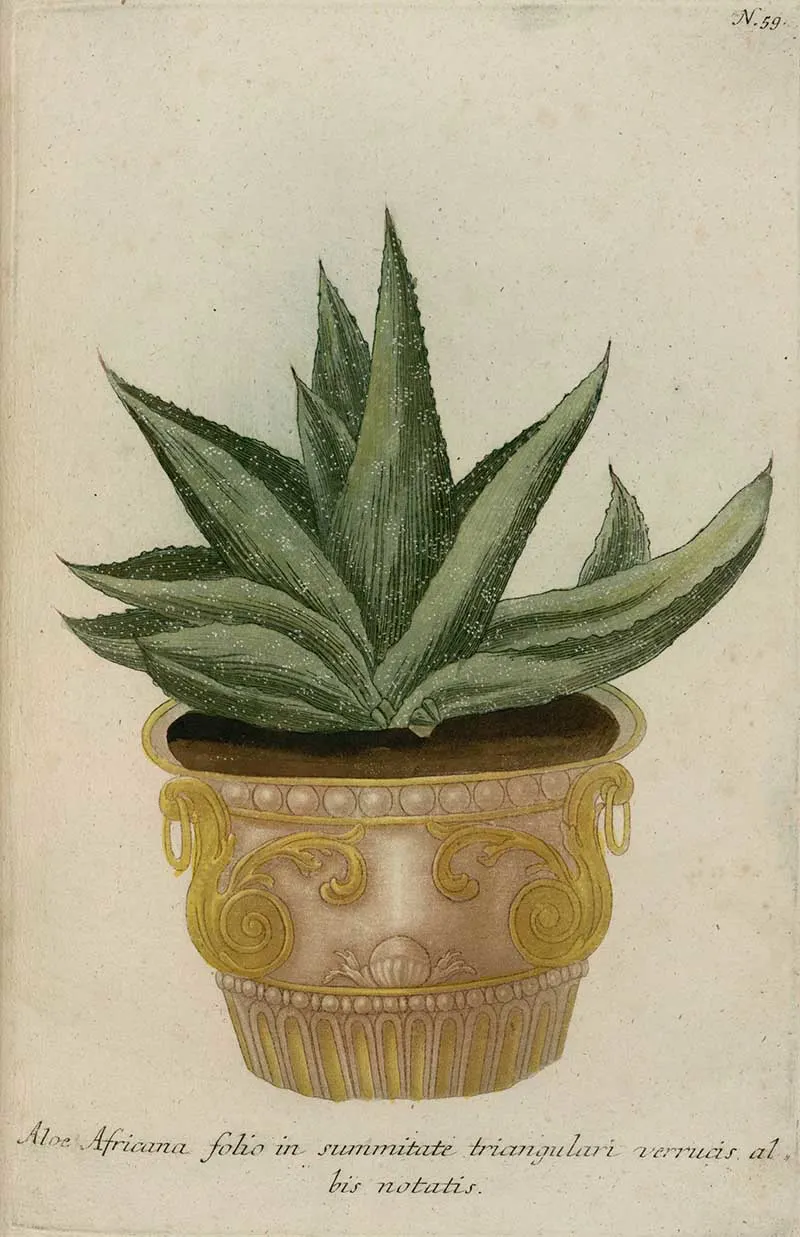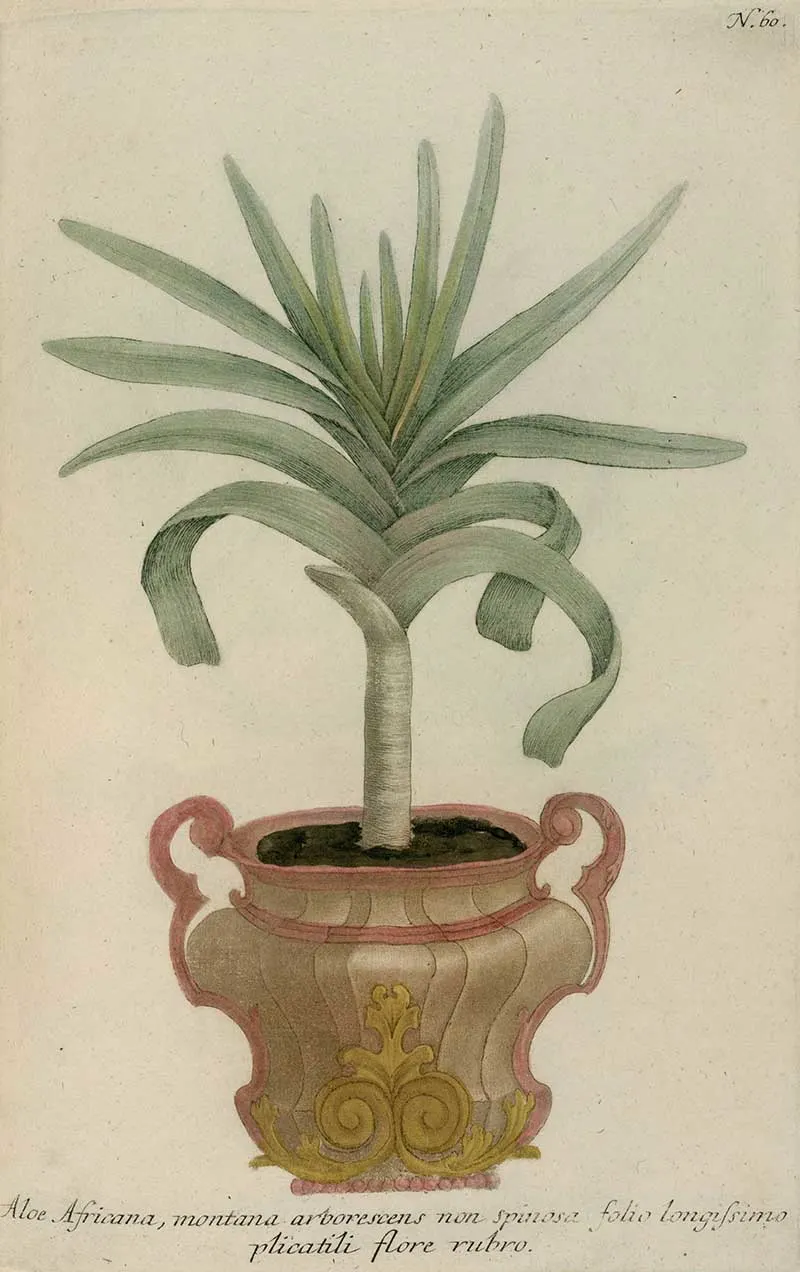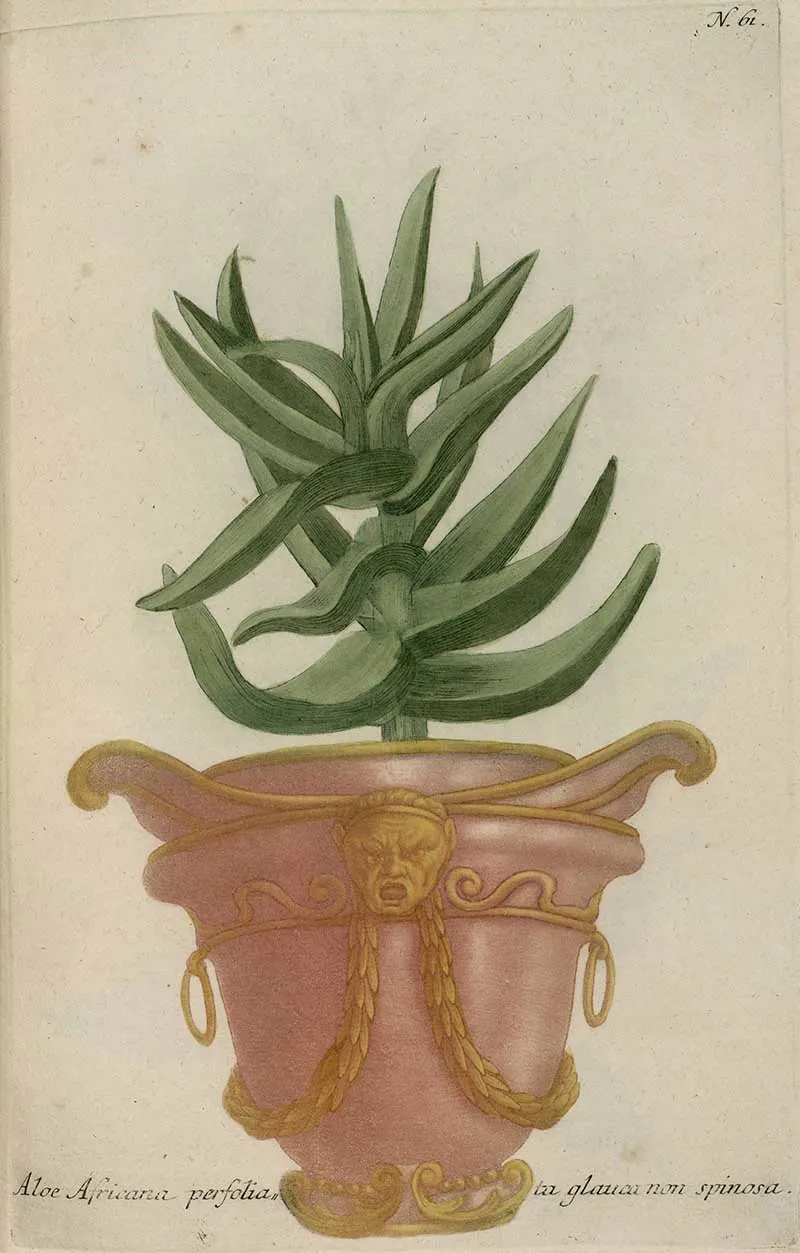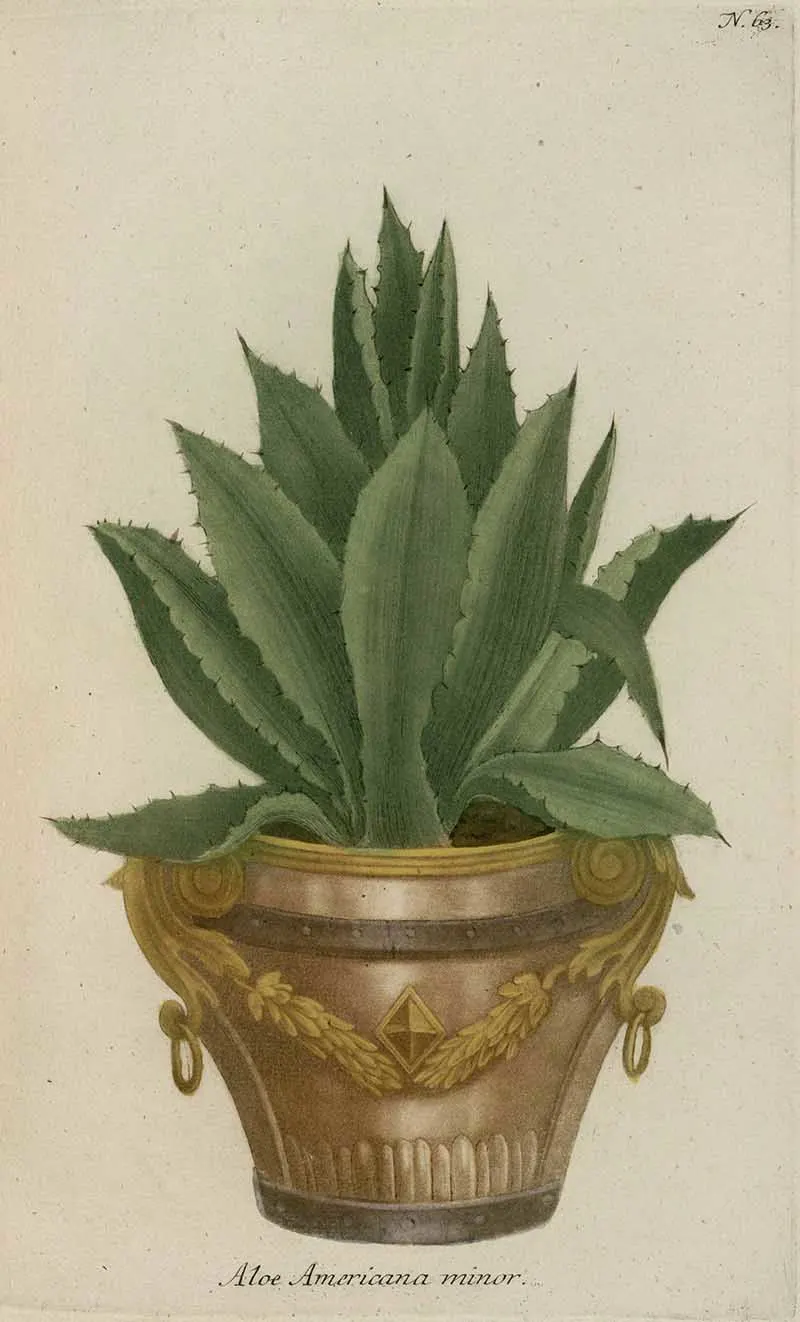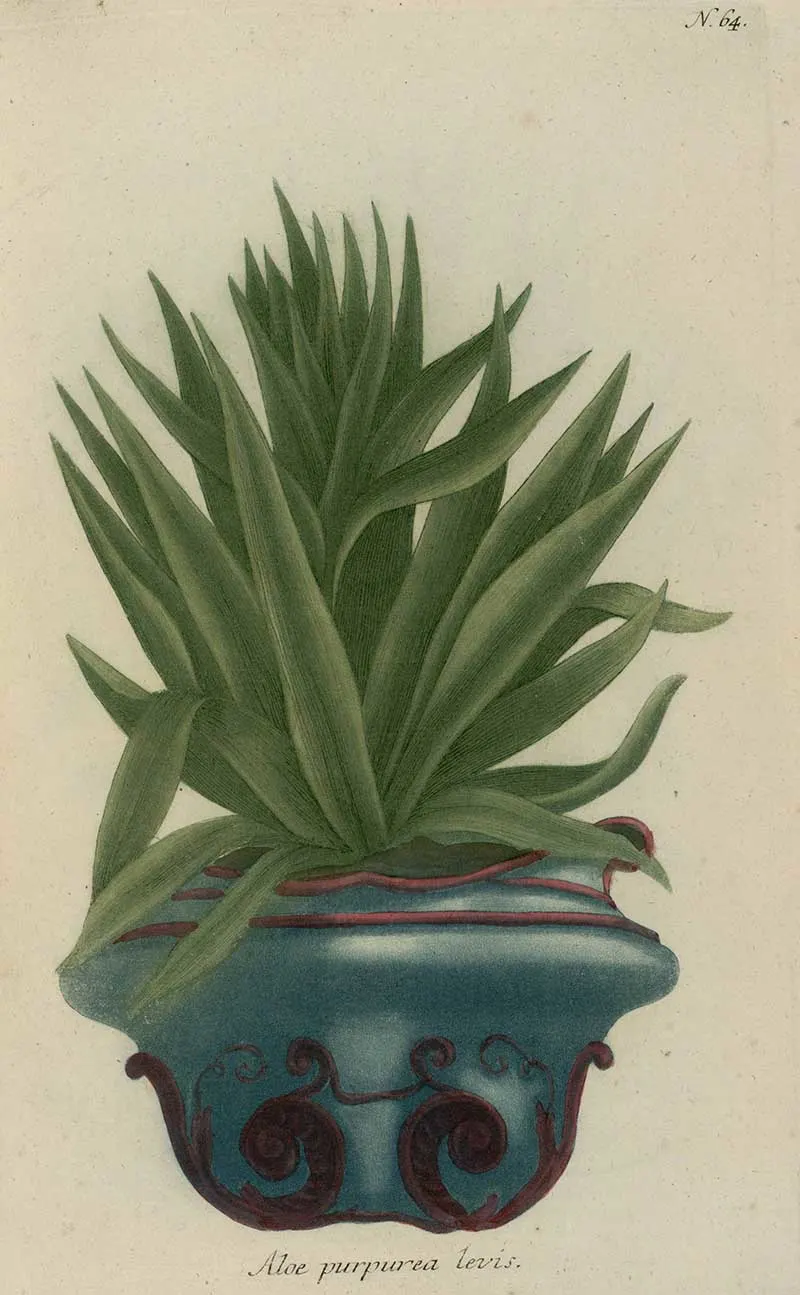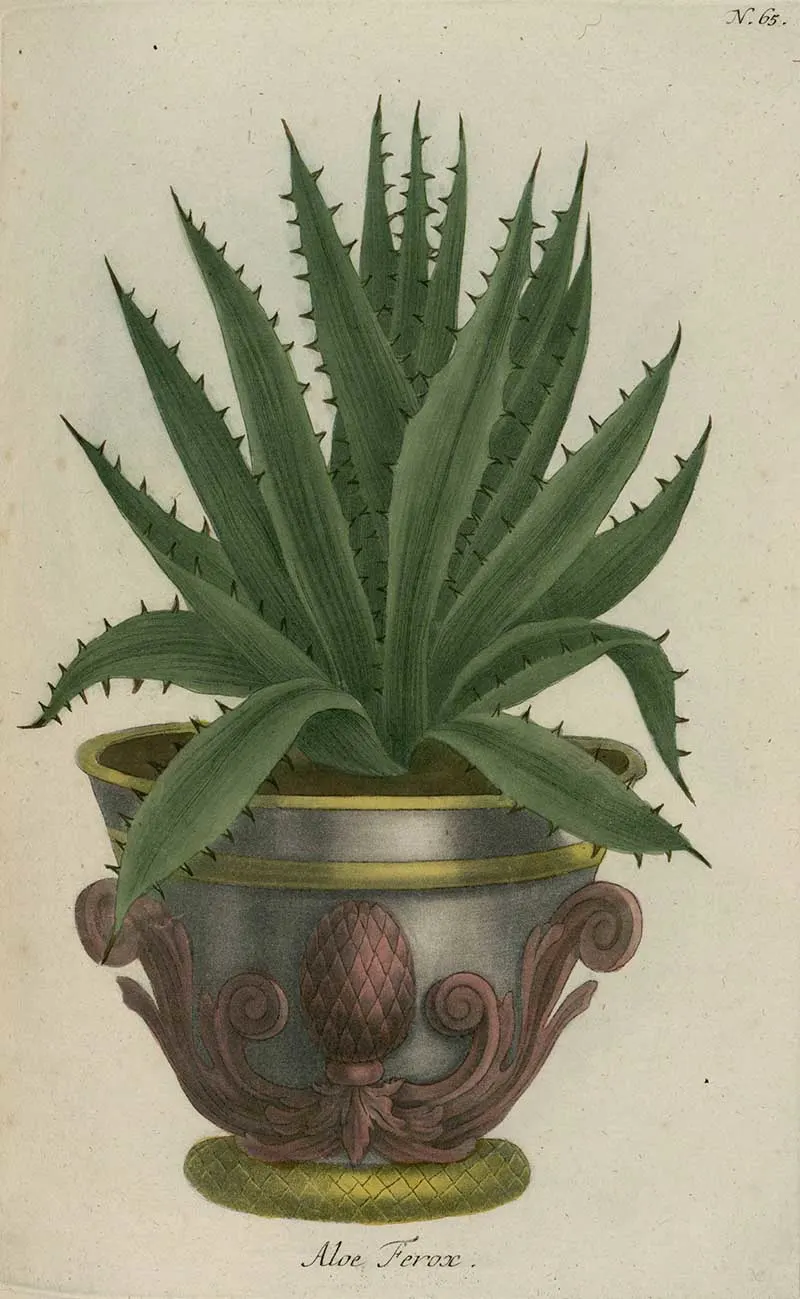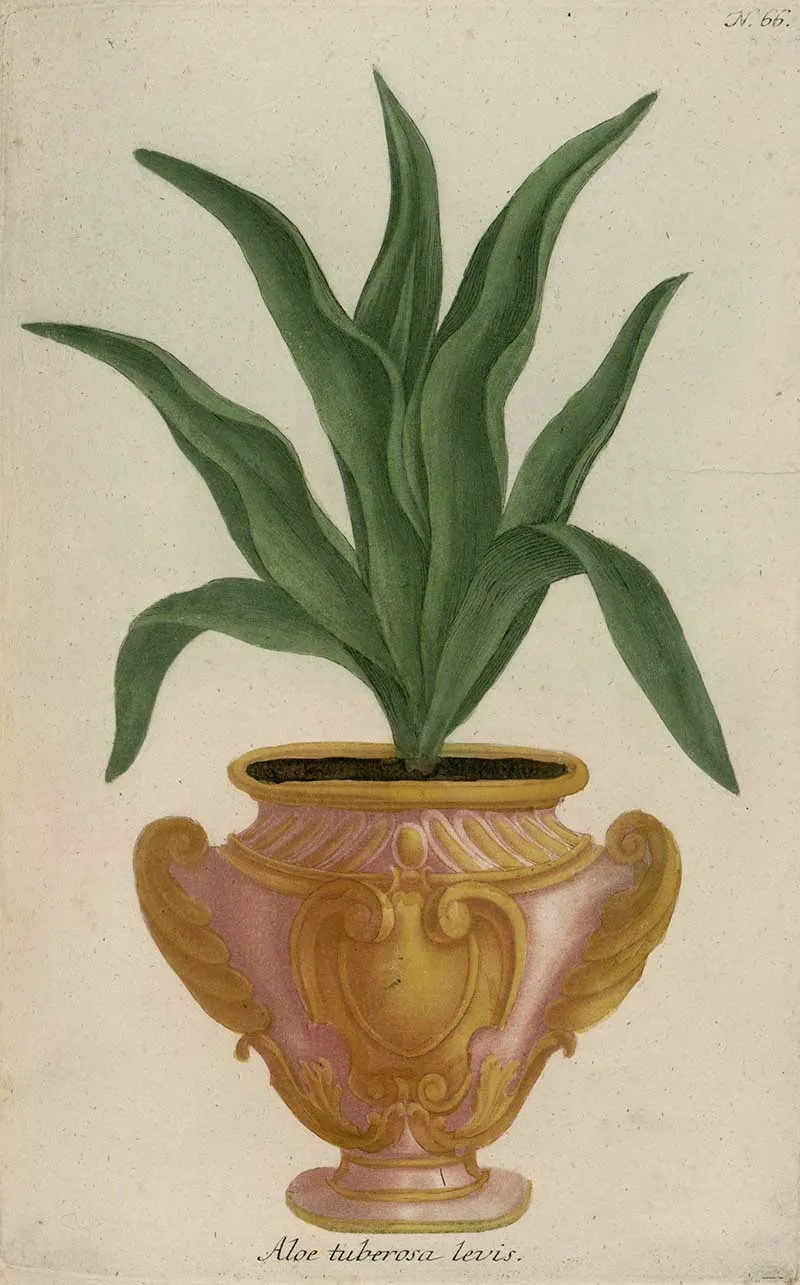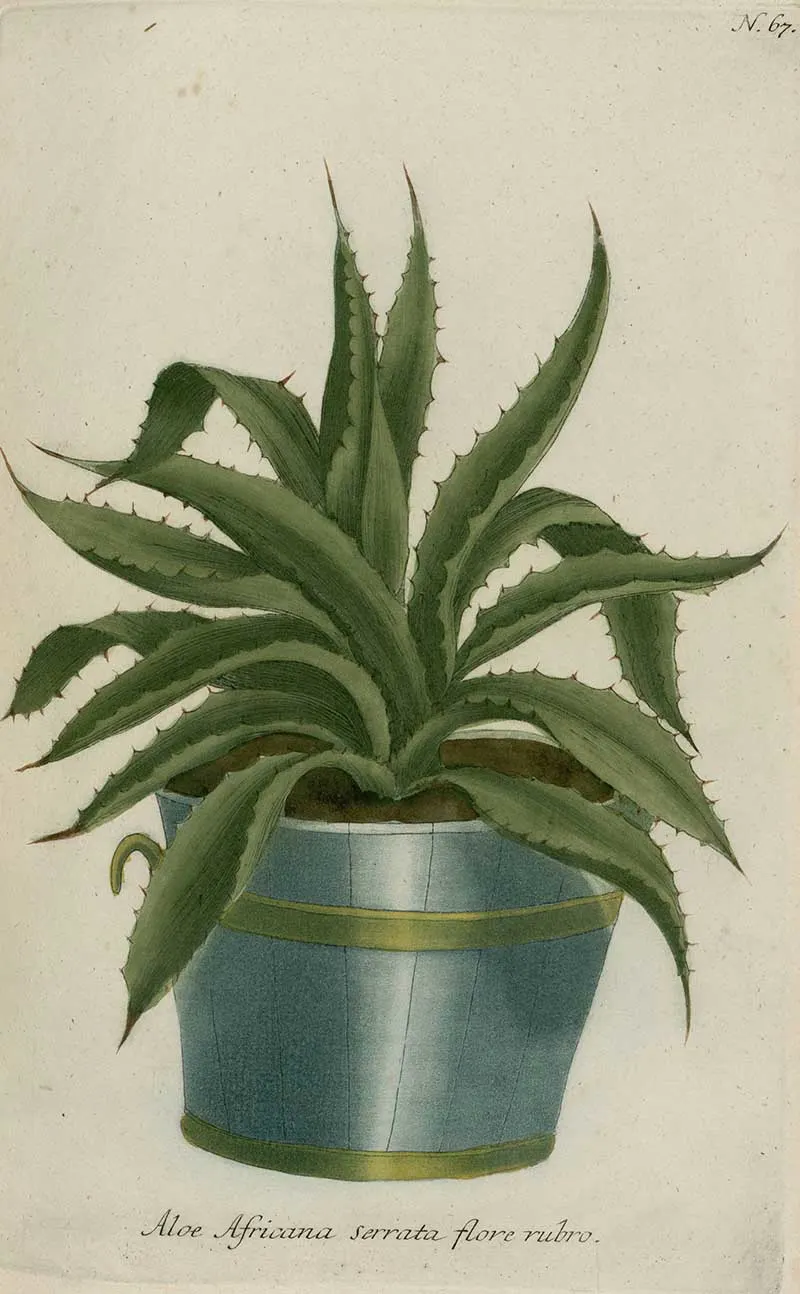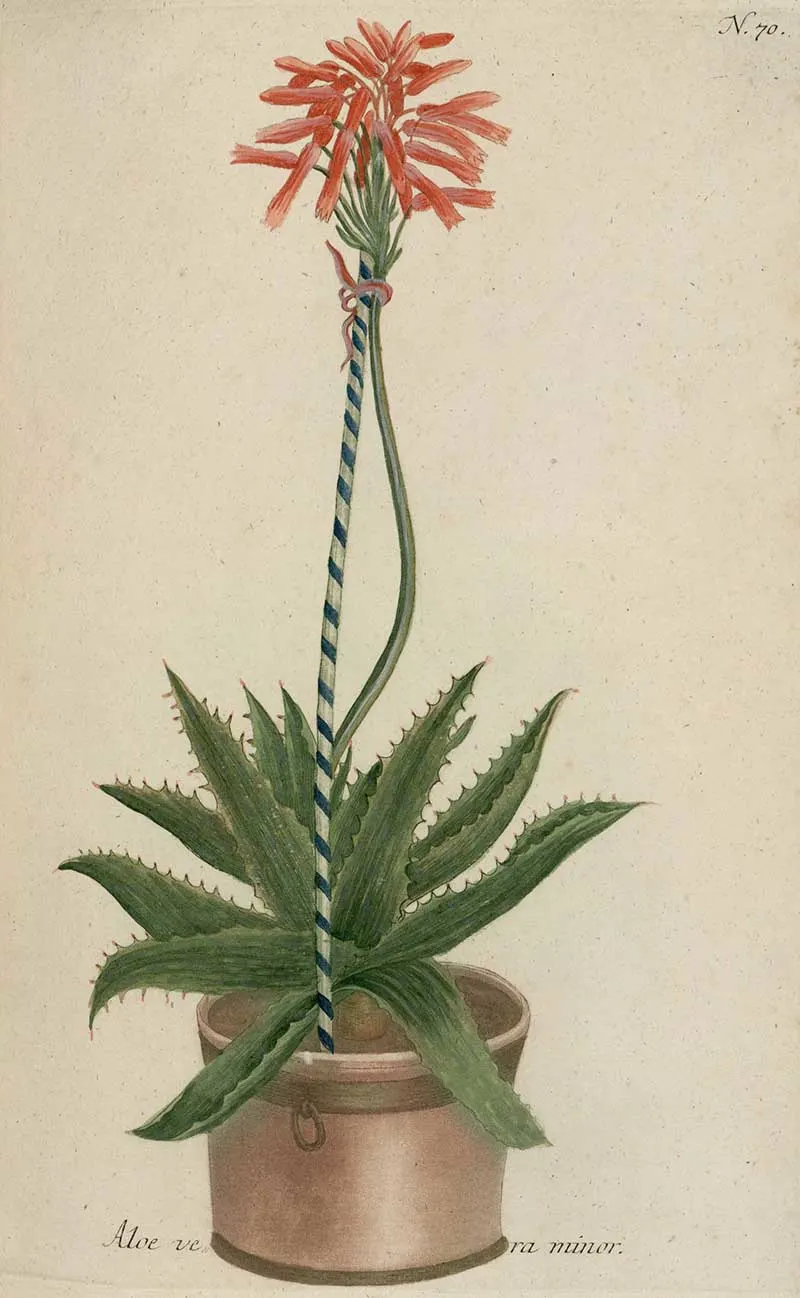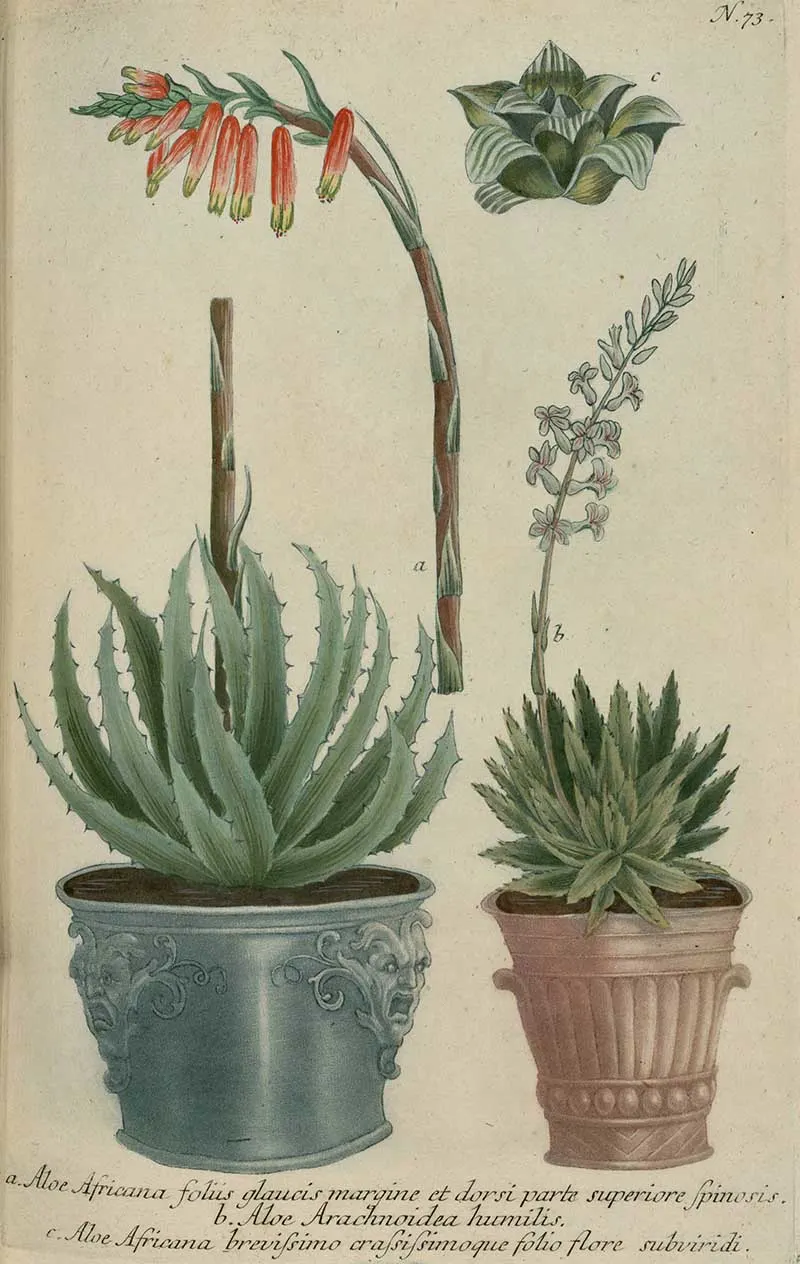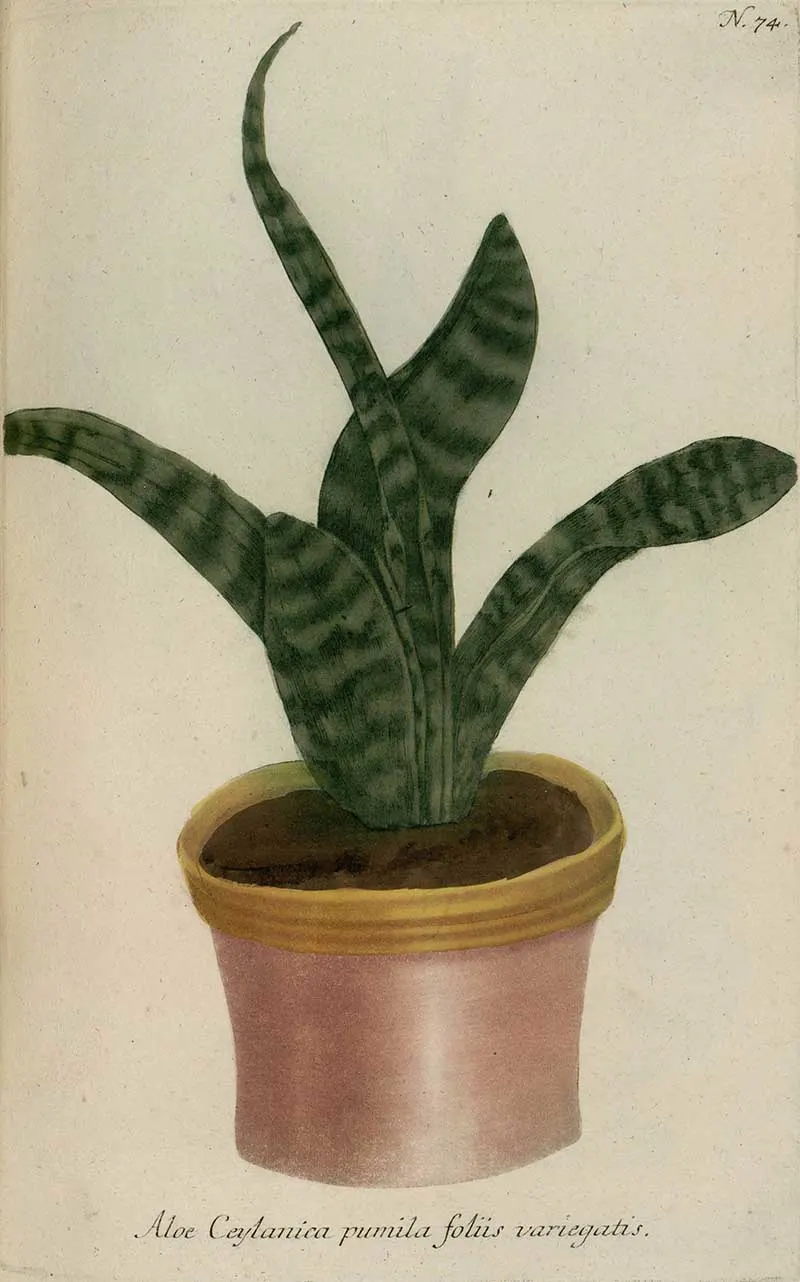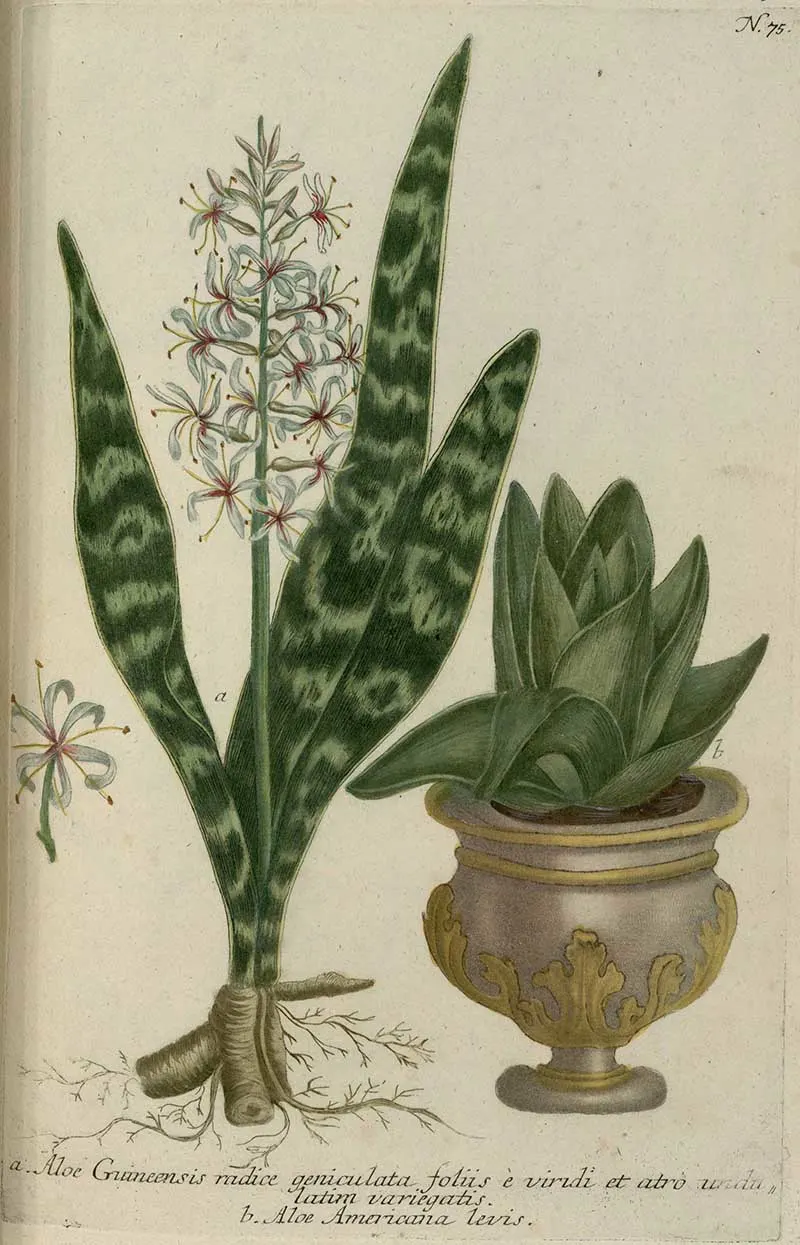Discover vintage potted plant illustrations by Johann Wilhelm Weinmann from Phytanthoza Iconographia. Perfect for adding botanical charm to your home.
Keeping potted plants alive feels like a losing battle in my shady house. Despite my best efforts, my plants look more like a “haunted house” than a “lush oasis.” But I refuse to give up on the idea of greenery indoors. Enter Johann Wilhelm Weinmann’s Phytanthoza Iconographia (1737–1745). These botanical illustrations of potted plants are the perfect way to add some plant magic to my walls – without the inevitable heartbreak of wilting leaves.
If you’re craving more leafy inspiration, check out my tropical house plant drawings – perfect for brightening up even the darkest corners!
A Botanical Masterpiece from the 18th Century
Weinmann’s Phytanthoza Iconographia isn’t just a pretty collection of plant illustrations – it was groundbreaking. Johann Wilhelm Weinmann was a German apothecary passionate about plants and classification.
Frustrated by the limited plant identification resources, he created a comprehensive visual catalogue. His efforts resulted in one of the earliest works to use colour mezzotint printing, a technique that brought his illustrations to life with remarkable vibrancy and detail.
With over 1,000 hand-coloured engravings spread across four volumes, Weinmann’s book documented everything from medicinal herbs to exotic tropical plants. His collaboration with artists like Georg Dionysius Ehret ensured that the illustrations and works of art were scientifically accurate in their own right. These plates inspired later botanical explorers and helped shape the foundation of plant classification systems we still use today.
The potted plant prints in this collection are pure joy – ornate pots and exotic greenery, all thriving without any sunlight or water. For more botanical charm, peek at the vintage potted ferns and Japanese Nursery catalogue on Pictureboxblue.
The Vintage Potted Plant Prints
To download the potted plant print you want, click on the title or image above the print you like. This will open a higher-resolution version in a new tab. You can right-click and select ‘Save Image As’ to download it to your device or print it directly from your browser.
These high-quality downloads make it easy to frame, craft, or enjoy as part of your home decor. They are all in the Public Domain and copyright free.
Potted Plant Art Prints 1-7
Potted Plant Print 1: Agave americana
Aloe mucronato folio Americana major refers to Agave americana, the century plant. Featured in Phytanthoza Iconographia (Plate 42), this striking plant is known for its thick, spiny leaves arranged in dramatic rosettes. In the 18th century, agaves were often mislabeled as aloes due to their similar appearance.
Weinmann’s detailed illustration highlights the plant’s architectural beauty, which was part of his effort to document exotic species. Agave americana remains popular today for its bold, sculptural form – a perfect low-maintenance inspiration for art lovers and plant enthusiasts alike.
Potted Plant 2: Aloe vera vulgaris
Plate 43 of Phytanthoza Iconographia features Aloe vera vulgaris – Aloe vera. This 18th-century print by Johann Wilhelm Weinmann highlights the plant’s spiky, fleshy leaves in an elegant urn. Celebrated for its medicinal uses, Aloe vera was prized in early botanical studies.
Potted Plant 3: Aloe succotrina
Aloe succotrina is known for its long-lasting blooms, often persisting for weeks, which made it highly sought after in early botanical gardens for winter colour and medicinal uses. Its sap was prized for treating burns and wounds, much like Aloe vera, but with the added allure of striking red flowers.
Potted Plant Art 4: Aloe Africana
Potted Plant 5: Aloe Africana 2
Aloe africana is renowned for its dramatic, upward-curving leaves and tall, vibrant yellow-orange flower spikes that can reach over 6 feet tall. Native to South Africa, it stabilises soil and prevents erosion in coastal regions, making it visually striking and ecologically important.
Potted Plant Art 7: Yuccua Gloriosa
“Aloe tuberosa seu Yucca gloriosa major“ from Weinmann’s Phytanthoza Iconographia depicts Yucca gloriosa (Spanish Dagger). Known for its spiky leaves and tall flower stalk, this hardy plant was prized in early botanical studies.
Potted Plant Prints 8-14
Plant Print 8: Aloe africana margaritifera major
“Aloe africana margaritifera major“ from Phytanthoza Iconographia depicts Tulista pumila, a succulent with spotted leaves in tight rosettes. Formerly classified as Aloe, this South African native is prized for its striking foliage.
Plate 58 of Johann Wilhelm Weinmann’s Phytanthoza Iconographia features Aloe africana humilis foliis longis ab utraque parte ele gantissime verrucosis, which translates to “low-growing African aloe with long leaves, beautifully warty on both sides.” This description aligns with Aloe humilis, the dwarf hedgehog aloe.
In the 18th century, botanical nomenclature was less standardized, leading to descriptive Latin names highlighting plant characteristics. Weinmann’s illustration captures the distinctive features of this aloe, including its compact rosette of slender, tapering leaves adorned with white, spiky tubercles. These adaptations help the plant conserve water and reflect sunlight, enabling it to thrive in arid environments.
Plate 59 of Phytanthoza Iconographia by Johann Wilhelm Weinmann features Aloe africana folio in summitate triangulari verrucis al bis notatis – likely Aloe disticha. Known for its symmetrical, two-row leaf arrangement and wart-like markings, this aloe is depicted in a decorative pot.
Aloe africana, montana arborescens non spinosa, known today as Kumara plicatilis or the fan aloe. This plant is notable for its striking fan-like leaf arrangement and tall red flowers. Native to South African mountains, it thrives on rocky slopes.
Plant Print 12: African Aloe Non Spiney
Aloe africana perfoliata glauca non spinosa, which translates to “African aloe with glaucous, non-spiny leaves.”
Print 13: Aloe Americana Minor
Aloe Americana minor, now recognized as Agave americana (century plant). Known for its thick, serrated leaves in striking rosettes
Potted Plant Art 14: Aloe purpurea levis
Aloe purpurea levis, known today as Aloe purpurea or the Mauritius aloe. This aloe is notable for its smooth, purple-tinged leaves that grow in a rosette formation. Native to Mauritius, its striking colour and form made it a standout in 18th-century botanical collections.
Potted Plant Prints 15-21
Aloe ferox, the bitter aloe, is a striking succulent native to South Africa. Known for its towering flower spikes and thick, spiny leaves, it has been valued for centuries for its medicinal properties, particularly sap, used to treat burns and digestive issues.
Potted Plant 16: Aloe Turberosa Levis
Aloe tuberosa levis, depicting a smooth, tuberous aloe with fleshy, rosette leaves. Likely identified as Agave foetida.
Print 17: Aloe africana serrata flore rubro
Print 18: Aloe Vera Minor Flowering
Aloe vera minor may be smaller, but it’s just as mighty. Known for its soothing gel and medicinal benefits, this little aloe packs a healing punch. Weinmann’s depiction highlights its compact form and smooth leaves – the ultimate low-maintenance, hard-to-kill plant that’s been a household staple for centuries.
Potted Plant Print 19: Aloe africana foliis glaucis margine
Print 20: Aloe Celyonica Pumila
Aloe ceylanica pumila folis variegatis is a charming, low-growing aloe with eye-catching variegated leaves. Native to Ceylon (modern-day Sri Lanka), it brings a splash of exotic flair to Weinmann’s collection. Its petite size and striking leaf patterns make it a decorative favourite in any botanical art lineup.
Pot Plant Print 21: Aloe Guineensis radice geniculata
Conclusion and Other Botanical Art
While I may never master the art of indoor gardening, these vintage illustrations let me enjoy the vibe of potted plants without the maintenance. Weinmann’s Phytanthoza Iconographia captures the timeless beauty of nature – a gift for plant lovers and forgetful gardeners alike.
So, whether you’re a pro with plants or someone who appreciates them from afar, these stunning illustrations are a fantastic way to green up your space. Download your favourites, hang them up, and let your walls bloom – no watering is required!
If you’re craving more leafy inspiration, consider these collections:
- Stunning Vintage Botanical Prints from Oken’s Natural History: These detailed 19th-century illustrations showcase individual plants with classic elegance, much like Weinmann’s work.
- Impressive Free Collection Of Antique Botanical Posters: Featuring the works of Adolphe Millot, these vibrant posters display a variety of plants together, offering a rich tapestry of botanical art.
- You might also want to check out the beautiful collection of vintage cactus prints on the site – perfect for adding even more spiky charm to your decor.
If you fancy, you can Buy Me A Coffee Here.

